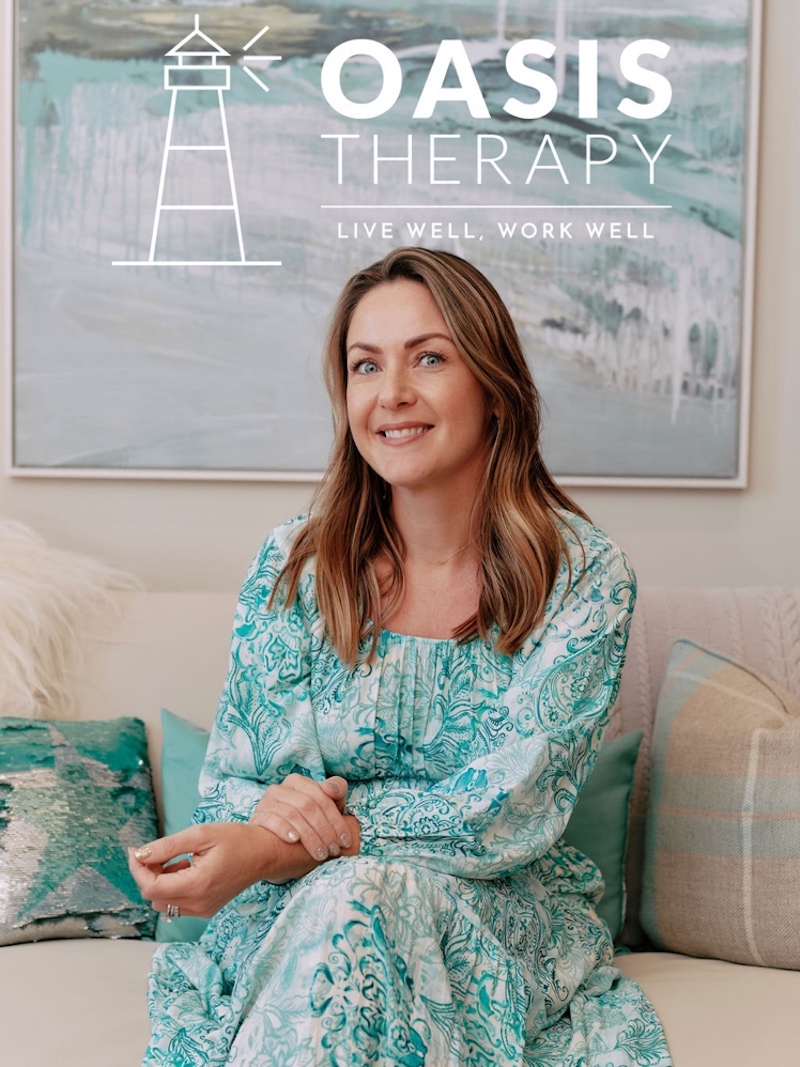


Sixteen times as many islanders with mental health conditions are being given online treatment by the Government's psychological therapy service compared to when the pandemic began, Express has learned.
While many say this means greater access and more timely support, could there be drawbacks to a lack of face-to-face interaction? Express explores...
In 2020, less than 3% of Jersey Talking Therapy appointments were conducted online.
Last year, 54% of appointments included online sessions or were wholly conducted online.
Note: 2024 is a partial year, and only includes appointments from January to October 2024.
Jersey Talking Therapies is part of the Government's Health and Community Services Department.
The service offers free and confidential psychological therapy for those over the age of 18 living in the island.
A request made by Express under the Freedom of Information Law revealed the service is offering an increasing number of online appointments.
In the UK, experts said that online therapy was no substitute for a one-to-one relationship with a therapist, and raised concerns that they could leave people feeling even more isolated than before.
Concerns were also raised about those living in poverty being excluded from being able to access digital treatment options.
Note: 2024 is a partial year, and only includes appointments from January to October 2024.
In-person appointments are available through Jersey Talking Therapies from Monday to Friday between 08:00 and 20:00 in St Helier.
Meanwhile, online appointments are from 07:00 until 23:00, seven days a week – making them more accessible for those with full-time jobs.
Online appointments have been provided by Xyla Digital Therapies since 2021, according to the response to a request made by Express under the Freedom of Information Law.
Since then, over 942 islanders have been referred to the service. Of these, 191 people (20%) did not engage with the service.
The number of referrals rose from 133 in 2021, to 353 last year.
Since the service contract was signed in 2021, the Government of Jersey has made two payments to Xyla Digital Therapies for therapy services totalling over £235,000.
Pictured: Andy Weir is the Government's Director of Mental Health and Adult Social Care.
Mental Health Director Andy Weir said: "There are around 300 people this year that have accessed therapy through Xyla.
"Covid has shown us that online therapy can be delivered very well with little differential outcome, for some people in some circumstances.
"In other stuff, we would prefer people to be seen face-to-face."
He added: "There's a challenge, isn't there, about whether or not that's a choice.
"Because actually, if we can only deliver X amount of therapy face-to-face, but we can deliver other therapy through different modes, then that's what we need to do."
When asked by Express about whether the he expects the number of number islanders accessing therapy online will continued to grow, Mr Weir said he did not know.
Matt Falla – who founded peer support group Man Club after his own struggles with mental illness – explained that the most important thing with regards to individuals that require the support of Jersey Talking Therapies is that they can access that support at the point they need it.
He acknowledged some of the benefits of online therapy.

Pictured: Matt Falla founded peer support group Man Club after his own struggles with mental illness.
"The ability to move some appointments online will have increased not only the availability of sessions, but also the number of therapists that are able to provide support, who don’t necessarily need to be on island," he said.
"Jersey is a tight knit community and the chances of someone seeker help knowing the locally based therapist allocated, unaware of the nuances of island life and events might be beneficial."
He added: "It may also provide a more empathetic way for individuals to access counselling, with physical encounters in an unfamiliar location possibly being a blocker."
However, Mr Falla raised concerns that online therapy can often struggle to match the personal relationship developed through in-person treatment.
He said: "Studies have shown that about 65% of the social meaning of a situation is derived from non-verbal cues.
"Not all non-verbal information is completely lost in video, but it is lower that face-to-face."
Mr Falla explained that factors like the strength and stability of your internet connection, the choice of location to speak from, and what you are exposed to in that environment can affect the impact of online sessions.
He said: "I personally struggled when trying to maintain an online relationship with my Jersey therapist whilst in Guernsey and found a local therapist instead.
"It was nothing to do with the individual, just the medium didn’t work for me."
He added: "In my opinion and experience, face-to-face sessions have helped me more than online.
"However, there are benefits to both and if someone that is suffering can find solace with therapy we shouldn’t be overly concerned with the 'how'."
Michelle Buckles, a registered psychotherapist in Jersey, explained that there are many reasons why somebody may choose to access therapy online.
"Post-Covid, many people and businesses have seen the benefits of working from home online and a whole new world opened up where ‘in person’ appointments were not as necessary due to video technology," she explained.
Ms Buckles said that online therapy can be a way of accessing support immediately, and bridge the gap of logistics and cost of travel.
"For some it can be a first step to accessing help and part of the goal setting of therapy, when they may not be able to meet in person to begin with, is giving the client some control and a goal to work towards meeting face-to-face," she said.
She added that, in Jersey, online therapy can be helpful for people travelling off-island for work it can often be a means to continuing therapy without interruption which some prefer.

Pictured: Michelle Buckles is a registered psychotherapist who works in Jersey.
Ms Buckles explained that she also has online clients who are not based in Jersey as local services in their area do not provide the support they need.
"In this way, online therapy can be of great help for geographically hard-to-reach locations where the support is unavailable," she said.
But overall, Ms Buckles' caseload is weighted more towards in-person clients than online – which she said she would expect on a small island such as Jersey where travel is not so much of a barrier.
"In terms of outcome measures, I use a variety of standardised questionnaires measuring elements of psychological distress and have found that there is no significant difference between the outcome results of online versus in-person therapy with reductions across both in-person and online," she explained.
"However, it really depends on the circumstances of the client and their needs at that time. There are some clients and situations where in-person therapy would certainly be preferable to online, and most clinicians would be aware of these presentations and advise accordingly to ensure the best mental health support is given."
She continued: "The therapist-client relationship is a key element to therapy being successful and how this is conducted online should always be done with professional care and consideration.
"Full training on how to conduct online therapy should be undertaken first to ensure that confidentiality, safety and client rapport is maintained."
Ms Buckles also called for more measurable outcomes across all mental health practitioners in Jersey to allow data to highlight any differences between in-person and online therapy.
"From my perspective, it would be good to have a universal outcome measure agreed and in place across all mental health practitioners in Jersey so that results can be shared and we can view the data in line with how it is conducted to give more depth to the argument and to draw any real conclusions," she explained.
Comments
Comments on this story express the views of the commentator only, not Bailiwick Publishing. We are unable to guarantee the accuracy of any of those comments.